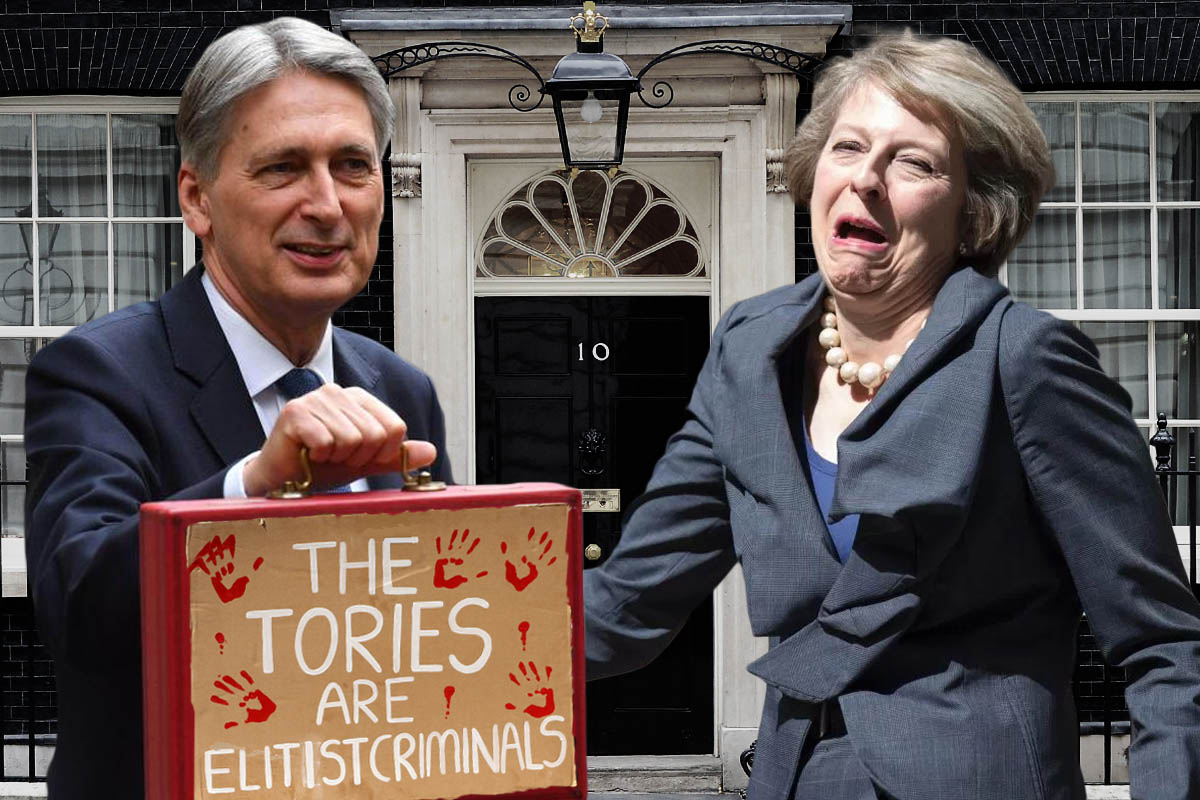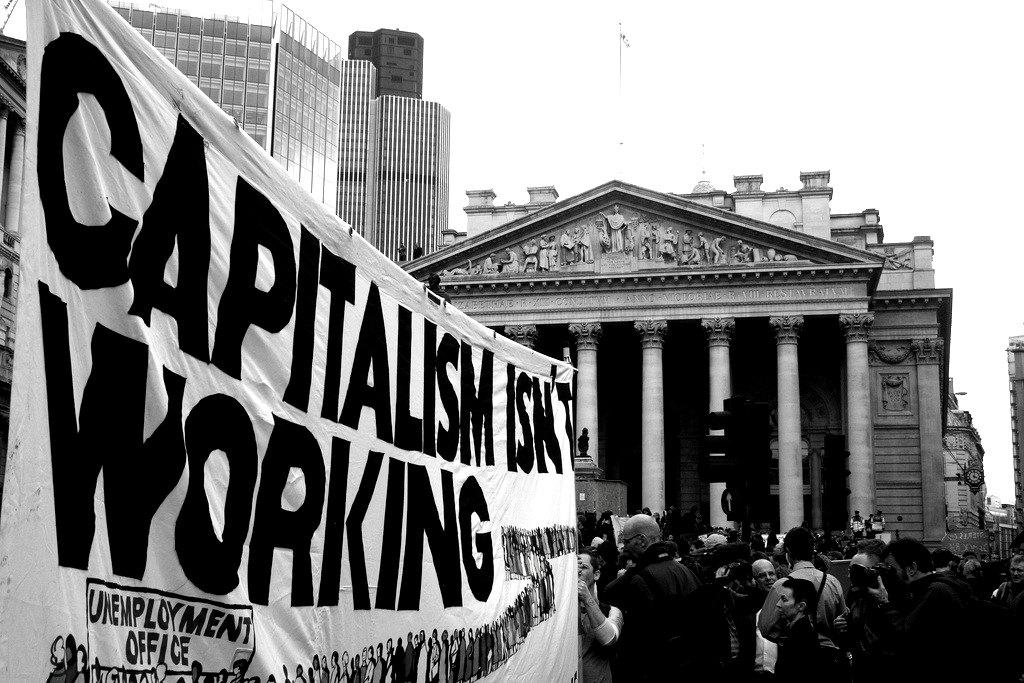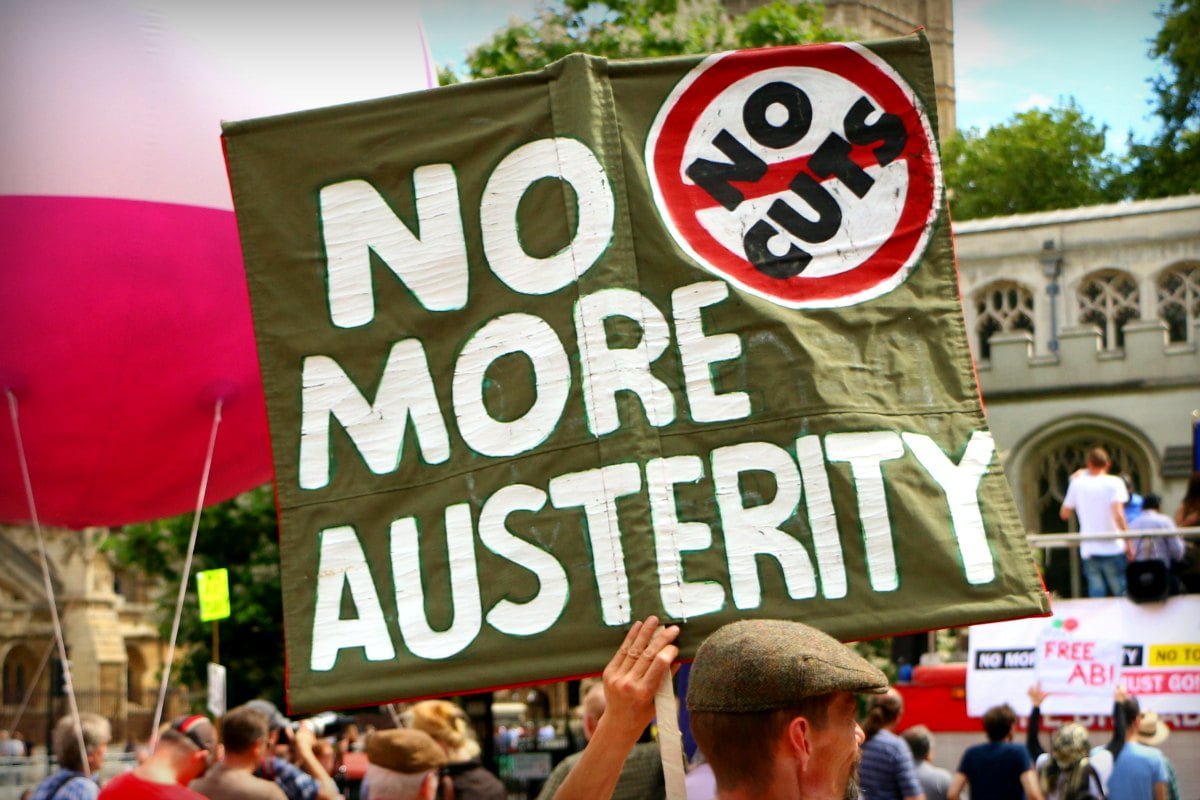After a decade of cuts, the Tory Prime Minister and Chancellor have both promised an end to austerity. But the continuing crisis of British – and world – capitalism makes this pledge ring hollow.
The headline announcement from the latest Budget was that “the era of austerity is finally coming to an end”. This assurance, coming from a Conservative chancellor, is an indication of just how far the mood in society has shifted. After eight years of cuts borne by the working class, the vulnerable, and the poor, it is clear that ordinary people are no longer willing to tolerate any more hollow rhetoric that “we’re all in this together”.
The Tories have traditionally painted themselves as a “safe pair of hands” with the economy. But they have now presided over almost a decade of weak growth, stagnant productivity, and declining real wages. As Martin Wolf euphemistically commented in the Financial Times, “we need to recognise that the economy is in far from excellent condition”.
Elsewhere, workers have experienced first hand the disaster of privatisation. Prices of rail travel, energy, and water have all outstripped inflation. And it was a Tory-led Ponzi scheme that allowed the now-collapsed outsourcing giant Carillion to stay afloat artificially for years. No wonder there is widespread support for nationalisation.
It is the impact of these events, combined with a confident anti-austerity Labour leadership, that have helped to transform the economic narrative. In sharp contrast to Ed Miliband’s promise of “austerity lite”, Corbyn and McDonnell have been going on the offensive against cuts, with the shadow chancellor asserting at the recent Labour conference that, “the greater the mess we inherit, the more radical we have to be”.
The cuts continue
 No wonder then that Philip Hammond was forced onto the back foot with his budgetary announcement to Parliament on Monday.
No wonder then that Philip Hammond was forced onto the back foot with his budgetary announcement to Parliament on Monday.
The Tory chancellor used improved forecasts from the Office for Budget Responsibility (OBR) – his very own version of the “magic money tree” – to offer up increased public spending and tax cuts and justify his claims about an end to austerity.
But nobody is really fooled by such shallow promises. The commitment to greater public spending, for example, will be almost entirely taken up by a much needed additional £20 billion in funding for the NHS – money that will at best be a sticking plaster over a gaping wound for a health system that has been declared a “humanitarian crisis” in recent years by the Red Cross.
Most other governmental departments, meanwhile, will see little or no extra money. Indeed, some will continue to face cuts, especially in real terms. Nor will there be any reversal of the deep cuts already made. A bit more cash will be thrown at the calamitous Universal Credit scheme, but this will do little to help those thrown into destitution and forced to rely on foodbanks as a result of the cuts to welfare and local services over the past decade.
The idea that austerity is over is a sick joke when local councils and important departments are running on empty. The Ministry of Justice, for example, has seen a 41% reduction in its budget since the Tories came in, resulting in the collapse of legal aid services and a severe crisis engulfing the country’s prisons.
The Institute for Fiscal Studies (IFS) estimates that £19 billion extra will be needed (on top of the money allocated to the NHS) in order to prevent further cuts to government departments. And this is without any reversal of the approximately £42 billion that has been slashed from departmental budgets since 2010, or the £17 billion chopped away from social security.
To add insult to injury, Hammond’s pledge of tax cuts was, unsurprisingly, just a gift to Tory voters. The Resolution Foundation predict that the giveaway will put an extra £410 per year in the pockets of Britain’s wealthiest households, compared to only £30 per year for the poorest.
Elephant in the room
 These announcements were small details, however, compared to the elephant in the room: Brexit.
These announcements were small details, however, compared to the elephant in the room: Brexit.
All of the chancellor’s promises came with one important caveat – the assumption of a soft and smooth Brexit (or, indeed, no Brexit at all). In the case of a chaotic no-deal departure from the EU, all the existing budgetary forecasts and commitments would be out the window.
One might consider this to be just another example of the usual deception that we have come to expect from establishment politicians. After all, when has any Tory chancellor ever openly declared their true economic intentions: to boost the profits of the bosses and make the working class pay for the crisis of capitalism?
Others have suggested that this Budget statement was an implicit threat by Hammond against Brexiteer opponents inside his own party: accept the Prime Minister’s proposals and there will be light at the end of the tunnel; continue on your anti-Brussels crusade and you will be blamed for economic disaster.
“When Mr Hammond talked of good times ahead, he was talking as much to his colleagues as to the country,” noted Robert Shrimsley in the Financial Times. But “all the promised good times will fall away if Britain does not secure a smooth Brexit. The money would be there to spend but only if MPs did not sink a deal.”
Capitalism = austerity
 Whatever the chancellor’s intentions, the hope of an end to austerity is utopian. Brexit – soft or hard; smooth or chaotic – is not the cause of the country’s economic woes, but a reflection of them; a confirmation of British capitalism’s long-term decline and reduced position on the world stage.
Whatever the chancellor’s intentions, the hope of an end to austerity is utopian. Brexit – soft or hard; smooth or chaotic – is not the cause of the country’s economic woes, but a reflection of them; a confirmation of British capitalism’s long-term decline and reduced position on the world stage.
Inside or outside of the European Union, under capitalism, there will continue to be attacks on the working class. Leaving Brussels’ jurisdiction, at most, will only serve to accelerate a process that has already been taking place for decades. Let us not forget that the aforementioned falls in real wages, living standards, and working conditions have all taken place whilst inside the EU.
Regardless of the outcome of the Brexit negotiations, the UK is swimming in troubled waters. Even if big business avoids an apocalyptic no-deal scenario, it will only be a case of jumping out of the frying pan and into the fire.
A decade on from the 2008 crash, the global economy is heading for another world slump. Warning lights are flashing across the board: from collapsing currencies in the so-called “emerging” economies; to concerns over an Italo-centric renewal of the euro crisis. And this time, economic fragility is compounded by political instability.
In the final analysis, it is the world crisis of capitalism that conditions whether or not austerity is required. This is the reality that any government in Britain – be it Tory or Labour – must contend with. Only a break with the diseased capitalist system can put the era of austerity behind us.






